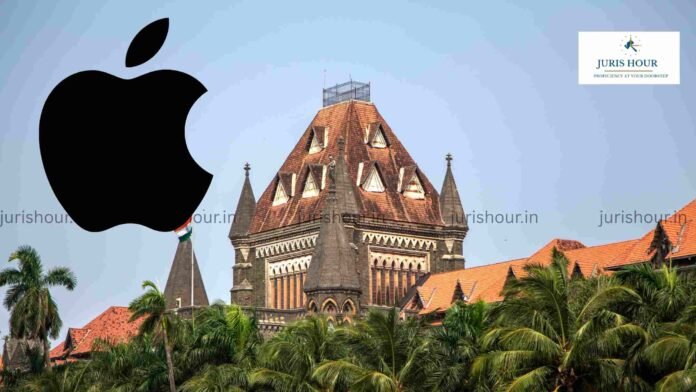The Bombay High Court has held that show-cause notice issued after application cannot bar Advance Ruling; sets aside Customs orders on Apple Watch Bands classification dispute.
A Division Bench of Justice M.S. Sonak and Justice Advait M. Sethna has observed that the Customs Authority for Advance Rulings (CAAR) wrongly rejected Apple India Pvt. Ltd.’s renewal application for its 2016 advance ruling on Apple Watch Bands, merely because a show-cause notice was issued later.
The petitioner, Apple India had approached the Bombay High Court challenging the CAAR order dated March 10, 2025, which declined to renew its 2016 Advance Ruling that classified Apple Watch Bands under tariff heading CTH 8517 7090; and the adjudication order dated March 25, 2025, passed by the Additional Commissioner of Customs (ACC, Mumbai), reclassifying the same products under CTH 9113 2010 (as parts of watches).
The 2016 Advance Ruling—supported by Customs’ own comments at the time—had classified Apple Watch Bands as accessories of communication devices, not as watch parts. However, a show-cause notice issued on December 27, 2024, sought to change that classification for the import period from April 1, 2021, to December 22, 2021, arguing that a later audit suggested a different classification.
Senior Advocate Rohan Shah on behalf of Apple argued that the renewal application for the 2016 Advance Ruling was filed on November 14, 2024, before the issuance of any show-cause notice. Under Section 28-I(2)(a) of the Customs Act, an Advance Ruling cannot be rejected unless a related issue is “already pending” before a customs officer on the date of filing the application—not one raised later. The 2016 Ruling was valid up to March 30, 2025, so the show-cause notice and subsequent adjudication order were without jurisdiction. The adjudicating officer had ignored Apple’s key contention that the earlier ruling was binding for the period in question.
The customs department argued that when the CAAR rejected Apple’s renewal plea on March 10, 2025, a show-cause notice was already pending. The audit findings constituted a “change in facts,” allowing Customs to reassess the classification. The 2016 ruling ceased to be binding once the renewal was rejected, and hence, the adjudication order issued later was valid.
The Bench disagreed with the Customs’ interpretation, holding that what matters under Section 28-I is the pendency of proceedings on the date of the application, not later developments. The show-cause notice dated December 27, 2024, was issued after Apple filed its renewal plea and thus could not be a bar to CAAR’s consideration of it. Citing precedents including Hyosung Corporation (Delhi High Court), SRICO Projects Pvt. Ltd (Telangana High Court), and General Motors India Pvt. Ltd (Bombay High Court), the judges emphasized that subsequent proceedings cannot retrospectively invalidate an advance ruling application.
The Court observed that CAAR had wrongly refused to exercise jurisdiction and directed it to decide Apple’s renewal application afresh.
On the adjudication order, the Bench held that the Additional Commissioner of Customs had failed to consider Apple’s argument regarding the binding nature of the 2016 ruling and the precedent set in Isha Exim v. Union of India (2023 SCC OnLine Bom 2700), which was upheld by the Supreme Court.
“The adjudicating authority could not have brushed aside such a contention without discussion,” the Court said, setting aside the March 25, 2025 adjudication order and directing a fresh hearing.
Case Details
Case Title: Apple India Versus Customs Authority for Advance Rulings
Case No.: Writ Petition (L) No. 13340 Of 2025
Date: 16 September 2025
Counsel For Petitioner: Rohan Shah, Senior Advocate
Counsel For Respondent: Maya Majumdar

